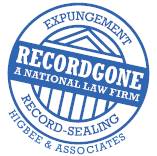The Minnesota House of Representatives passed a bill last week that will significantly improve the expungement law in Minnesota. The major changes include expanding the eligibility for a statutory expungement to some misdemeanor and felony convictions. Additionally the bill adds an explicit provision that requires background check companies to promptly remove the record of a case once they know it has been expunged.

How HF 2576 Began
H.F. 5276 is a result of the efforts of the Expungement Working Group, a group of legislators, who, as discussed in an article from November, believed steps needed to be taken towards changing the expungement laws in Minnesota. The bill was introduced March 3, and HF 2576 passed the House with a vote of 85-47 on April 9. The bill is now in the Senate.
Current MN Expungement Law is Limited
There are two types of expungements in Minnesota, statutory and inherent authority. Under the current expungement law in Minnesota, statutory expungement is limited to certain drug offenses, juveniles prosecuted as adults, and cases that were resolved in favor of the defendant (not convictions). In May of 2013, the Minnesota Supreme Court held that an “inherent authority” expungement only expunges the court records and not the executive branch records (including the BCA).
This means that an expunged conviction would still appear on the defendant’s BCA report. HF 2576 would add three new categories of cases that would be eligible for statutory expungement under Minnesota Statutes, section 609A.02. This would greatly increase the benefits of getting a Minnesota conviction expunged.
Convictions That Would be Eligible for Statutory Expungement
The following cases would be eligible for an expungement if this bill is passed:
1.) if the petitioner successfully completed the terms of a diversion program or stay of adjudication and has not been charged with a new crime for at least two years since completion of the program or stay of adjudication;
2.) if the petitioner was convicted of or received a stayed sentence for a petty misdemeanor, misdemeanor, or gross misdemeanor and has not been convicted of a new crime for at least five years since discharge of the sentence; or
3.) if the petitioner was convicted of or received a stayed sentence for certain felony violations (excluding “person offenses” and “crimes of violence”) and has not been convicted of a new crime for at least eight years since discharge of the sentence.
Background Check Companies Must Remove Expunged Cases
The bill would also amend the law to clarify that “business screening services” (background check companies) must immediately remove the record of an expunged case once notified about the expungement. This may be implied under the current law, but expunged records do still often appear on background check reports. By making convictions eligible for a statutory expungement and by explicitly stating that background check companies must remove the information immediately, this bill would be a huge help to those individuals with a criminal record looking for jobs and housing.
Amendments to the Juvenile Expungement Law
The bill also amends the juvenile expungement law and would give the court the authority to expunge executive branch records, in addition to the court records. This is in response to a recent case, in which the court ruled that a juvenile expungement applied only to the adjudication (court) records and not other documents, such as the arrest and investigative records.
Burden of Proof for an Expungement
The current rule is that for an expungement the petitioner has the burden of proving that expungement would yield a benefit to the petitioner commensurate with (equal to) the disadvantages to the public and public safety. In cases that were resolved in favor of the petitioner, the burden switches to the agency whose records would be affected. HF 2576 specifies that the agency would also have the burden of proof in cases where the petitioner successfully completed a diversion program. However, for the other types of cases that would become eligible for a statutory expungement (the convictions listed above), the petitioner would have the burden of proof.
If passed, HF 2576 would prove to be a huge improvement on the current expungement laws in Minnesota and would help many people move forward and find jobs and housing.
Read our article entitled Minnesota Legislature Looking to Improve Expungement Law for more information on Minnesota expungement law changes.




